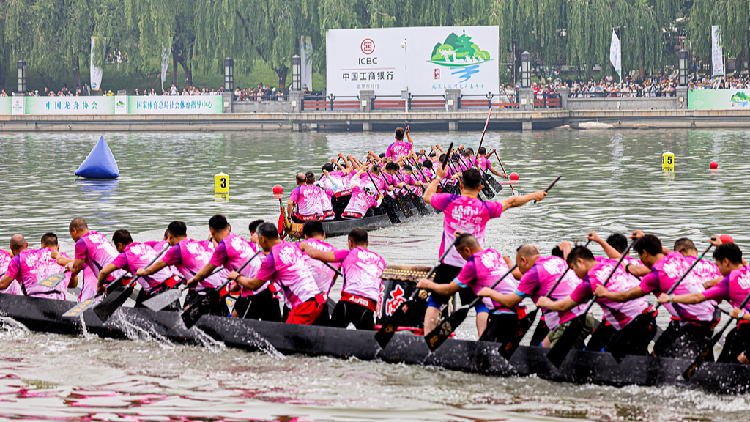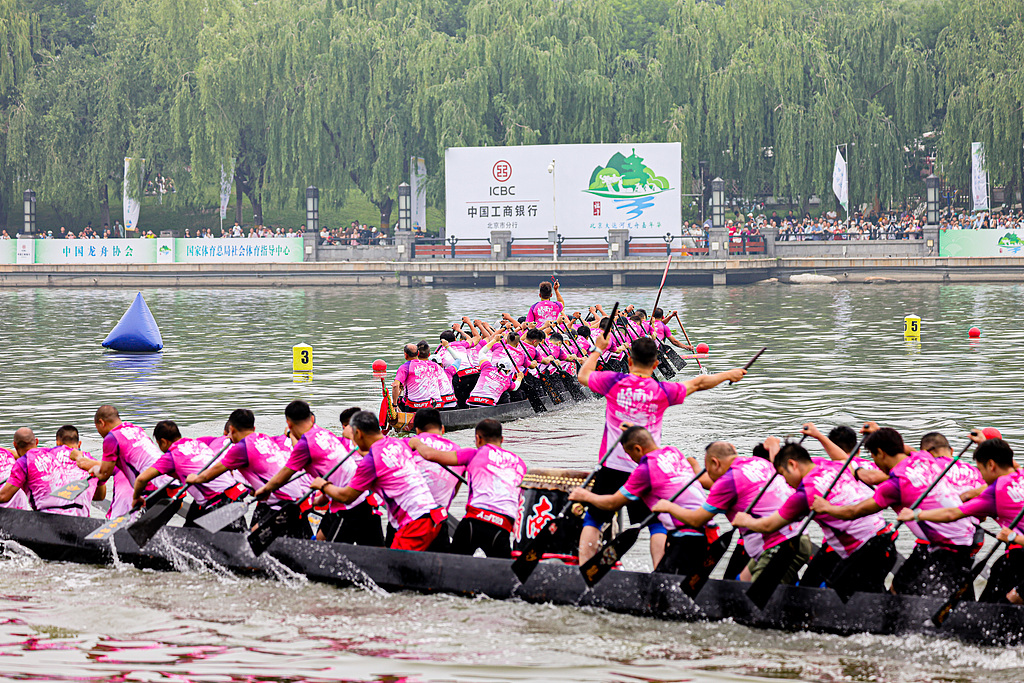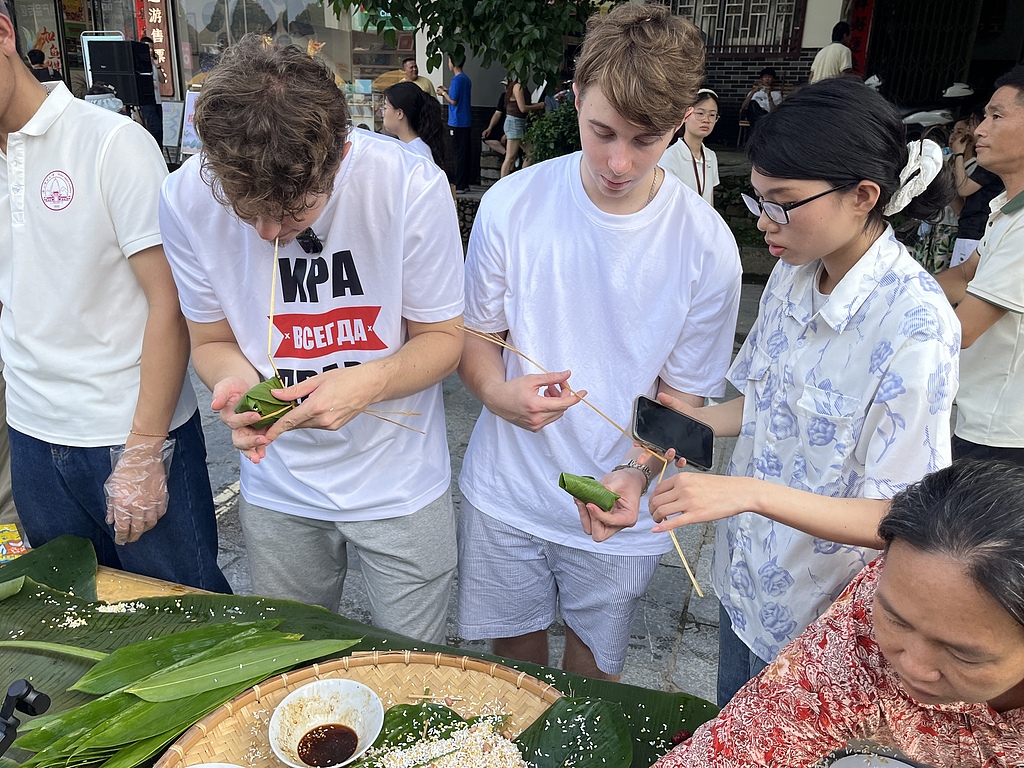Dragon Boat Festival Sparks Record-Breaking Holiday Spending Surge in China
Dragon Boat Festival drives record-breaking domestic travel and spending, fueling China's tourism boom


The recently concluded three-day Dragon Boat Festival has emerged as a powerful driver for China's tourism and consumption sectors, with 119 million domestic trips tallied and total domestic tourism spending soaring to 42.7 billion yuan. Beyond China’s borders, the fervor was mirrored by significant travel activity; figures from the National Immigration Administration revealed 5.9 million cross-border movements processed during the holiday period, demonstrating the festival’s growing global appeal.From drums to zongzi: A festival reimagined
In Beijing's Tongzhou District, the vibrant Grand Canal Dragon Boat Carnival electrified crowds with thirty-two teams representing Beijing, Hebei, and Guangdong. The festival kicked off with traditional dragon boat races, where synchronized paddlers and pounding drumbeats sent boats surging through the canal amid a sea of cheering spectators. The highlight was a dazzling performance by the Lingnan team from Guangdong, whose jaw-dropping dragon boat drifting skills—including sharp turns and full 360-degree spins—drew thunderous applause along both shores. Supplementing the main event were unique competitions such as dragon boat tug-of-war, paddle board races, and arm-wrestling championships, adding fresh excitement for all ages. Online, lighthearted banter about regional differences in racing styles added to the fun. Northern dragon boat races are said to often end in splashes and laughter as crew members tumble into the water, whereas the southern teams earn admiration for their disciplined, fast-paced precision. Steeped in tradition, the origins of the festival pay homage to Qu Yuan, the beloved Warring States poet who inspired villagers to race across rivers in search of his body. The custom of throwing zongzi—sticky rice parcels—into the water to distract fish remains a central ritual.

This year, the humble zongzi underwent a creative transformation. In Chengdu’s bustling Jinniu District, vendors offered not just traditional pork and egg yolk zongzi but also innovative flavors including chocolate and pineapple. One family-size zongzi, weighing up to 1.5 kilograms and stuffed with succulent pork belly and seven salted duck eggs, became an instant hit for its celebratory spirit. Vendors emphasized that the giant zongzi was designed for sharing, bringing families and friends closer together around the dinner table. The globalization of zongzi is also gathering speed. An enterprising company from Zhejiang Province collaborated with Chinese students at Oxford University to host an online "Dragon Boat Culture Day," featuring live dumpling-making tutorials and cultural exchanges. This year, the company reported strong export sales in countries such as Cambodia, Singapore, South Korea, and Canada, with especially enthusiastic uptake in South Korea—a testament to the festival’s expanding international footprint. Tourism gets a cultural makeover
China’s tourism industry saw remarkable growth over the Dragon Boat Festival, powered by a renewed interest in hands-on cultural experiences. Data revealed that bookings for traditional experiences—including dragon boat races and zongzi cooking workshops—jumped by more than 105 percent compared to last year. The timing of the festival, dovetailing with Children’s Day, further buoyed travel demand among families, with a 20 percent rise in parent-child trips and theme park ticket bookings more than doubling.

These trends highlight a significant shift in traveler expectations—from passive sightseeing to immersive, participatory experiences. In Henan Province’s Yuntai Mountain geopark, tourism has been transformed with hands-on activities such as porcelain-making workshops based on Tang Dynasty traditions. Visitors now craft their own mugs, teacups, and artisanal souvenirs with local masters, which has boosted both appreciation for regional culture and economic prospects for nearby villages. Adventure enthusiasts are also well catered for, with options ranging from paddleboarding on the mountain’s lakes to cliffside rail climbing and exhilarating jungle roller coasters. Extended ticket validity and upgraded homestays—now full-service rural resorts with fruit-picking, handicraft workshops, and stargazing camps—have encouraged longer stays and deeper engagement with local communities. According to regional officials, Yuntai Mountain township’s principal service hub now generates over 50 million yuan annually and supports hundreds of local jobs. The thriving tourism and homestay sector has raised per capita rural incomes above 62,000 yuan, signaling that the Dragon Boat Festival’s legacy is now measured not only in cultural vibrancy but also in tangible economic gains for millions of Chinese families.
Editor: Yang Xuemin




